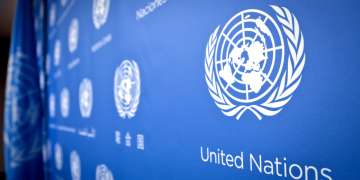At $62 million, UN owes India most for peacekeeping contribution
United Nations: The United Nations (UN) owes India $62 million – the most it has to pay to any country – for contribution towards peacekeeping operations including troops and equipment, the top official of the
United Nations: The United Nations (UN) owes India $62 million – the most it has to pay to any country – for contribution towards peacekeeping operations including troops and equipment, the top official of the world body said.
As on March 31, 2016, the UN owed troop contributing countries a total of $827 million, including $261 million in troop costs and $480 million for equipment for active missions, Under-Secretary-General for Management Yukio Takasu told reporters here on Wednesday.
Of this total, he said the UN owed “the largest amount” of $62 million to India, followed by Bangladesh at $59 million, Pakistan at $49 million and Ethiopia at $47 million.
He said money owed to troop contributing nations is “always a source of concern because it is very unfair for them that they provide all the valuable troops, personnel and equipment and they are not reimbursed timely because of financial problems”.
At about 7,695 troops, India is currently the second largest contributor among all UN troop contributors.
Traditionally, India has been among the largest contributor of troops to UN peacekeeping operations, with nearly 1,80,000 troops having served in over 44 of the 69 peacekeeping operations so far.
The country has repeatedly called for the Security Council to consult troop contributing countries before drawing up peacekeeping mandates given that troops now have to function in increasingly difficult and hostile conflict situations across the world’s hot-spots.
Among the countries that owe the UN money is the US, which has to pay 1.3 billion dollars for peacekeeping and 917 million dollars towards regular budget.
Read Also: Majority in UN backs adding permanent members to Security Council: India
Takasu said the world organisation’s financial situation is “sound and positive”, noting, however, that there is “some worry” regarding the areas of regular budget and reserves.
“The financial situation of the United Nations is generally sound,” he said.
His overview to the General Assembly’s Fifth Committee, which is tasked with administrative and budgetary concerns, included details on the four main assessment areas of the regular budget; UN peacekeeping operations; international tribunals; and the Capital Master Plan.
Takasu said the organisation’s cash balances were positive at the end of 2015, except for the regular budget, which showed a shortfall of $217 million, which is being funded by a “very small reserve”.
“I think it’s prudent to review the adequacy of the reserves. The regular budget is always tight in the last quarter of the year, and this is expected in 2016. The question is whether the size of the reserve is good enough,” he added.
For the 2015 regular budget, member States were obligated to contribute a total of $2.771 billion, an increase of $159 million from 2014. Payments received were $237 million higher in 2015 than in 2014, Takasu said.
Unpaid assessed contributions stood at $1.43 billion as of April 30, 2016, down $163 million from the same period the previous year.
For peacekeeping operations, Takasu said the total of unpaid assessments at the end of 2015 was $976 million, reflecting a decrease of $306 million from the previous year.
As of April 30, new assessments of $3.9 billion had been issued, of which $2.4 billion remain unpaid, he said.
